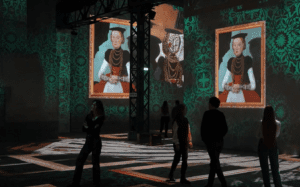By Trish Svoboda
Veterinary students at Kansas State University can now study ophthalmology more effectively due to a partnership between the College of Veterinary Medicine and the Technology Development Institute (TDI).
TDI and the College of Veterinary Medicine have created a new training tool for veterinary students, a 3D-printed eye model that mimics the eyes of dogs, cats, horses, and rabbits.
The model eye globes, designed by the TDI engineering team, are based on images from the College of Veterinary Medicine. They allow students to practice fundoscopy exams to check the fundus, which is the back inside of the eye, including the retina and optic nerve. These aid in learning the use of an ophthalmoscope, the instrument used for inspecting the eye.
The courses aim to minimize the use of live animals in teaching. Using models, students can acquire necessary coordination and hand skills. Once these basic skills are mastered, they are prepared to handle live patients. “What we needed was a model that provided not just representative images of a normal fundus but one that could teach them how to utilize more functions of the ophthalmoscope when doing direct fundoscopy,” K-State’s Susan Rose said. “I wanted to have them learn how to use the diopter to focus on different planes, not just look at the back of the eye. This was a significant improvement over their previous handmade models.”
TDI’s model, which includes the mid-range iris, clear lens cornea, and fundus, offers improved learning for students. The initial training eyes are larger for easier learning of indirect fundoscopy.
Quinton Berggren, a senior engineer at TDI, collaborated on the eye globe design to ensure accuracy and usefulness for vet students. The team has created various animal eye globes packaged into a training kit. These kits are available for sale to veterinary schools, with efforts underway to find distribution partners.
The idea for the training aid was developed by K-State’s Susan Rose, clinical skills instructor, and Shane Lyon, clinical associate professor, and clinical skills coordinator, both in the College of Veterinary Medicine.













